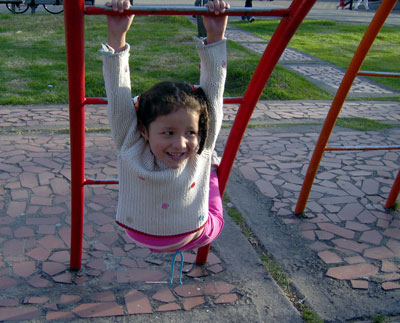 If you are looking to become a teacher, it is likely that you are not doing it for the paycheck. Most teachers get into their profession because of their love of learning and their care for students. Now, there are more ways than ever to help aspiring early childhood education teachers get through school. Between public and private loan programs at both the state and local level, along with loan forgiveness and cancellation programs for those teachers who choose to work in certain areas, there are definitely a lot of options to pay for school rather than digging into your own pocket.
If you are looking to become a teacher, it is likely that you are not doing it for the paycheck. Most teachers get into their profession because of their love of learning and their care for students. Now, there are more ways than ever to help aspiring early childhood education teachers get through school. Between public and private loan programs at both the state and local level, along with loan forgiveness and cancellation programs for those teachers who choose to work in certain areas, there are definitely a lot of options to pay for school rather than digging into your own pocket.
If you are like most people, you do not have a large college fund you can draw from when it is time to go to college. And the thought of taking out student loans makes you nervous because you know your salary as a teacher is not going to be very high. For you and many others, loan programs like Stafford loans, Perkins loans and private loans can help you get the money you desperately need for school.
The FAFSA Process
The Free Application for Federal Student Aid (FAFSA) is basically your one-stop-shop for applying for all government and state loans. To fill out this application, simply grab your tax return from last year, and make sure your parents are able to fill out their portion of this application too, if you are deemed a dependent student. This is based on age and grade level, as well as some other factors, and actually has nothing to do with whether your parents contribute to your education financially or not.
Government Loans for Early Childhood Education Teachers
As you go through the FAFSA, you will answer personal questions about basic background information, tax information and what you want to study. This is done to qualify you for various loan programs such as the Stafford loan, Perkins loan and also for the Pell Grant. The award amounts for the Stafford loans stay the same regardless of your income, but this application will let you know if you are awarded Pell Grant money or a Perkins loan, which is for people with extreme income difficulties. The FAFSA process does not involve a credit check.
Private Loans for Early Childhood Education Teachers
If you are unable to get enough funding out of the government loan and grant programs to pay for school, then you may want to consider private loans. These can be done through many of the national banks and even credit unions. It can be hard to get qualified for one of these loans as a younger student, because you may not have built up enough credit yet, but if you can get a parent, close relative or friend with strong credit to cosign for you, then you are in luck. Today’s private loans for early childhood education often have more flexible repayment periods and work in a similar fashion to the federal student loan programs.
Loan Forgiveness and Cancellation Programs
One of the great things about going into Early Childhood Education as part of your teaching path is the ability you will have to get a portion of your student loans ‘cancelled,’ or ‘forgiven.’ There are some stipulations for these programs you will have to consider. First, you will have to make sure that the school you choose to teach at is considered a Title I, low-income, or has a 30 percent population of low-income students. Second, you will have to teach there for five consecutive years without any excused interruptions. Third, you will have to fill out a Teacher Loan Forgiveness Application and get your superior to sign off on it.
Discounts on Stafford Loans and Local Loan Forgiveness Programs
Beware of misinformation out there regarding these two types of offers. The only way to legitimately get ‘discounts’ on Stafford Loans is to sign up for an automatic repayment option or to pay every payment on-time for a certain amount of time. What happens in that case is your interest is lowered. Local loan forgiveness programs are sometimes eligible through the university where you earned your degree, but they are a lot less common. Read the fine print.
